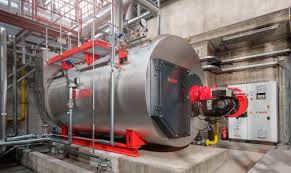Boilers Bill, 2024:

The Lok Sabha passed the Boilers Bill, 2024, replacing the century-old Boilers Act of 1923. The bill, which aims to decriminalise seven offences and promote ease of doing business.
- The Boilers Act of 1923 was enacted to regulate the manufacturing, installation, operation, alteration, and repair of steam boilers to ensure safety.
- The Act was last amended in 2007 to allow independent third-party inspections, but further reforms were needed.
- The Boilers Bill, 2024, aligns with the Jan Vishwas (Amendment of Provisions) Act, 2023, which focuses on decriminalization and ease of doing business (EoDB).
- The Bill is redrafted with modern drafting practices to improve clarity and efficiency.
- A boiler is a vessel where steam is generated under pressure. As of 2024, India has around 40 lakh steam boilers used in industries like power, manufacturing, and chemicals.
Key Features of the Boilers Bill, 2024:
- Replacement of Boilers Act, 1923: The new Bill repeals the century-old Boilers Act, 1923, aligning regulations with modern safety standards.
- Ease of Doing Business (EoDB): The Bill enhances business operations by decriminalizing 3 out of 7 offences, reducing legal hurdles.
- Categorisation of Offences: 4 major offences (risking life and property): Criminal penalties retained.
Other offences: These are converted into fiscal penalties, handled by an executive mechanism instead of courts. - Modern drafting practices: The Bill is simplified and structured into six chapters, consolidating similar provisions for clarity and accessibility.
- Enhanced safety measures: Ensure worker safety inside boilers. Mandates boiler repairs by qualified and competent persons.
- Redundant provisions: Outdated sections from pre-constitutional times omitted. New definitions and amendments were added for better clarity.
- Jan Vishwas Act, 2023 alignment: Follows the decriminalisation reforms under the Jan Vishwas (Amendment of Provisions) Act, 2023.
- Central & State Government roles: Clearly define powers and functions of the Central Government, State Governments, and Central Boilers Board to avoid confusion.




